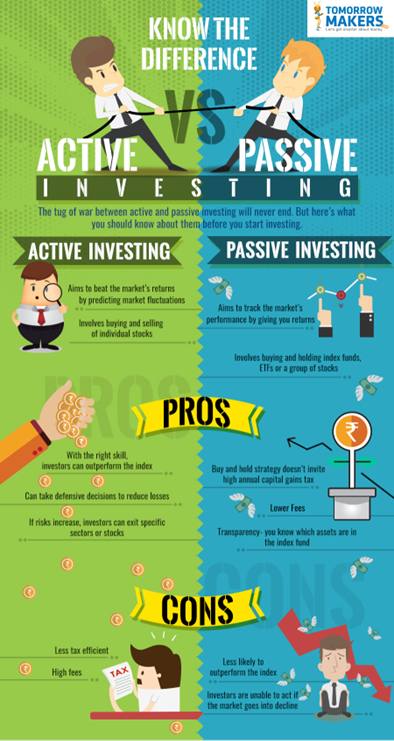





Copyright infringement not intended
Picture Courtesy: Hindustan Times
Context: Passive funds and active funds are two different approaches to investing in the financial markets.
Key Highlights
|
Performance and Expense Ratio |
●Passive funds aim to replicate the performance of a specific benchmark index, such as the Nifty50 or Sensex. They do not aim to outperform the index. ●Active funds, on the other hand, are actively managed, and their goal is to outperform their benchmark index. The fund manager makes investment decisions with the aim of achieving better returns. |
|
Return Expectation |
●Passive funds are not expected to outperform their benchmark index. Their returns will closely mirror the performance of the index, but they might be slightly lower due to expenses, tracking errors, and cash holdings. ●Active funds aim to beat their benchmark index, and their returns can vary based on the fund manager's investment decisions. |
|
Expenses |
●Passive funds generally have lower expense ratios compared to active funds since they require less active management. ●Active funds may have higher expense ratios due to the costs associated with research, analysis, and active trading. |
|
Tracking Error |
●Tracking error measures how closely a passive fund's returns match the returns of the benchmark index. A lower tracking error indicates that the fund closely follows the index. ●A higher tracking error suggests that the fund's performance deviates more from the benchmark index. |
|
Fund Format |
●ETFs are exchange-traded funds that are bought and sold on stock exchanges. They require a trading account and can be subject to market demand, leading to differences between the trading price and the fund's Net Asset Value (NAV). ●Some passive funds, which are not ETFs, can be purchased and redeemed directly with the mutual fund. These funds are more liquid as they can be redeemed at the NAV. |
|
Fund Selection |
●In active funds, investors typically assess the fund manager's performance and their ability to beat the benchmark index. ●In passive funds, investors focus on factors like tracking errors or tracking differences to evaluate how closely the fund replicates the index. |
|
Index Selection |
●The choice of benchmark index is crucial in passive investing. Different indices represent different sectors or asset classes, and they can significantly impact returns. ●Selecting the right index that aligns with investment goals and risk tolerance is essential. |

Conclusion
|
PRACTICE QUESTION Q. What is the role of SEBI (Securities and Exchange Board of India) in regulating the Indian securities market, and how does it contribute to investor protection and market integrity? |






© 2026 iasgyan. All right reserved